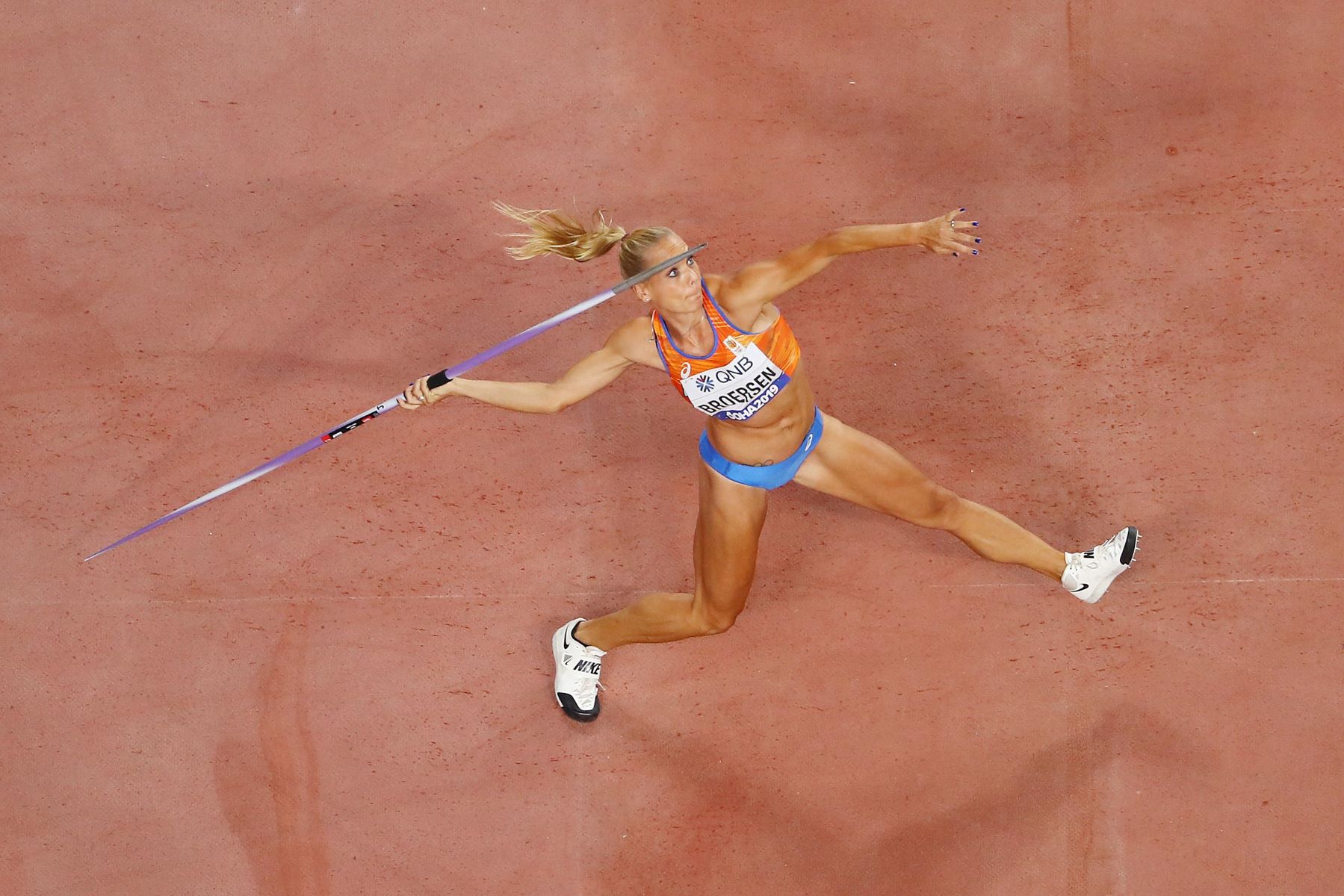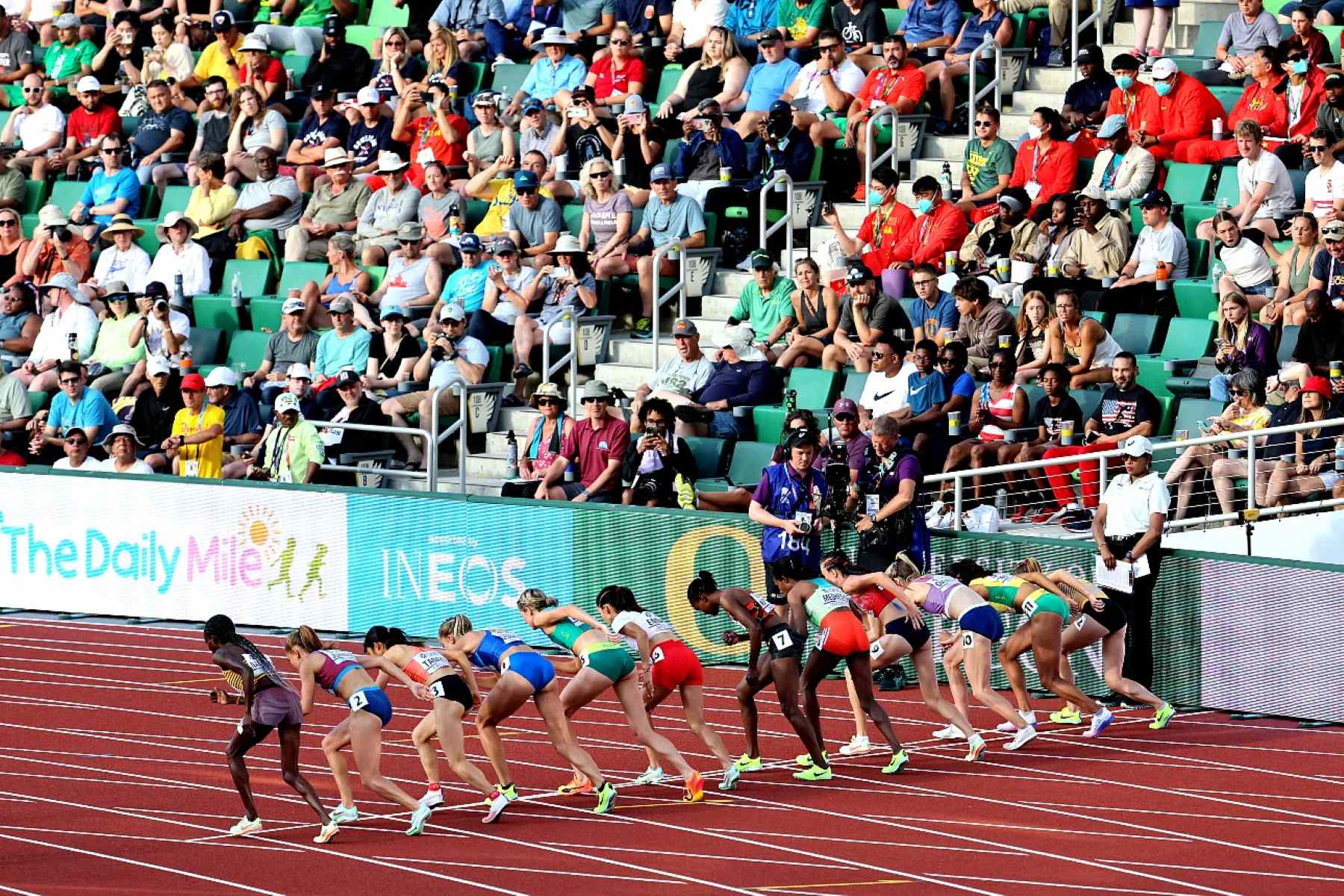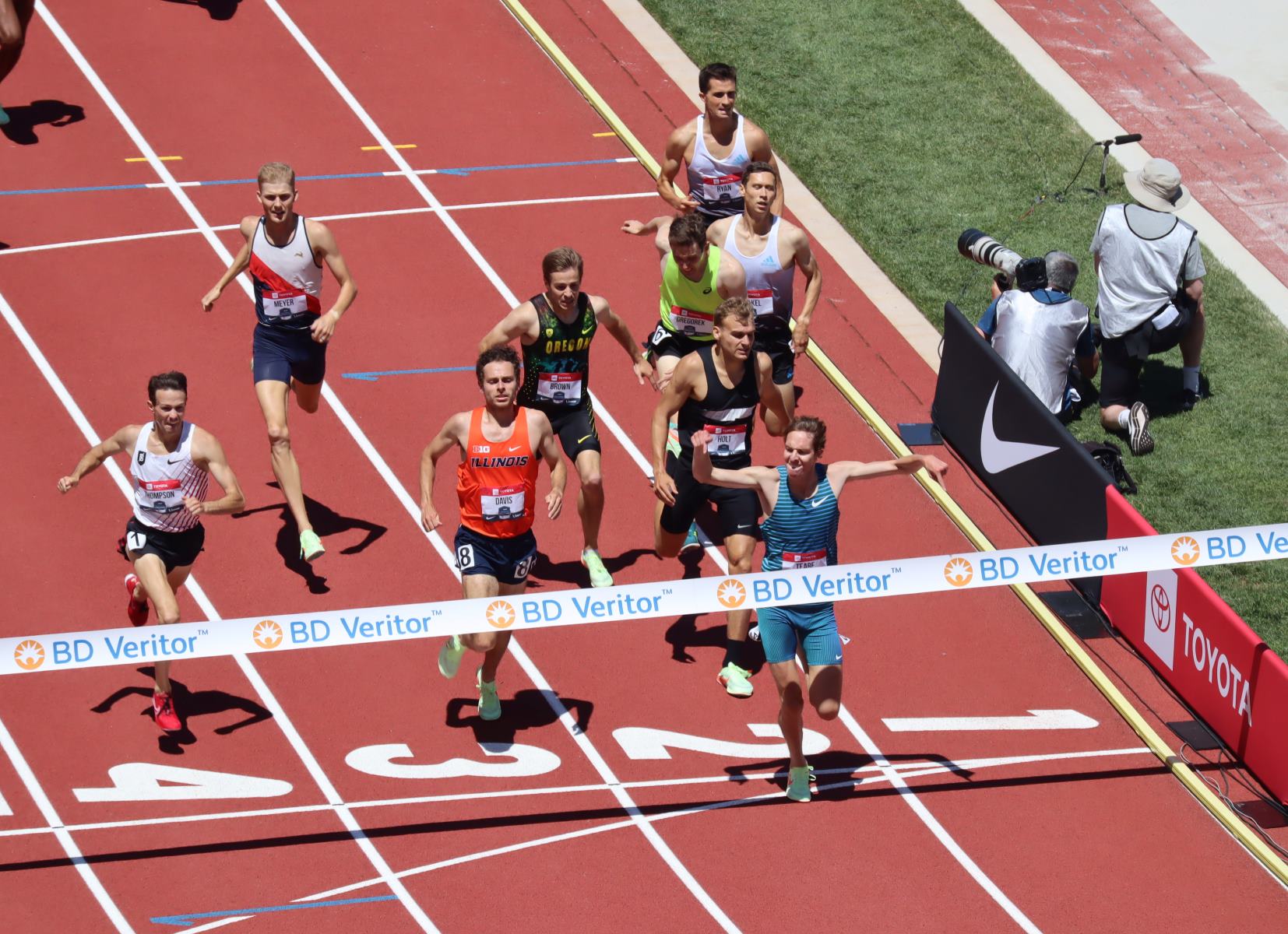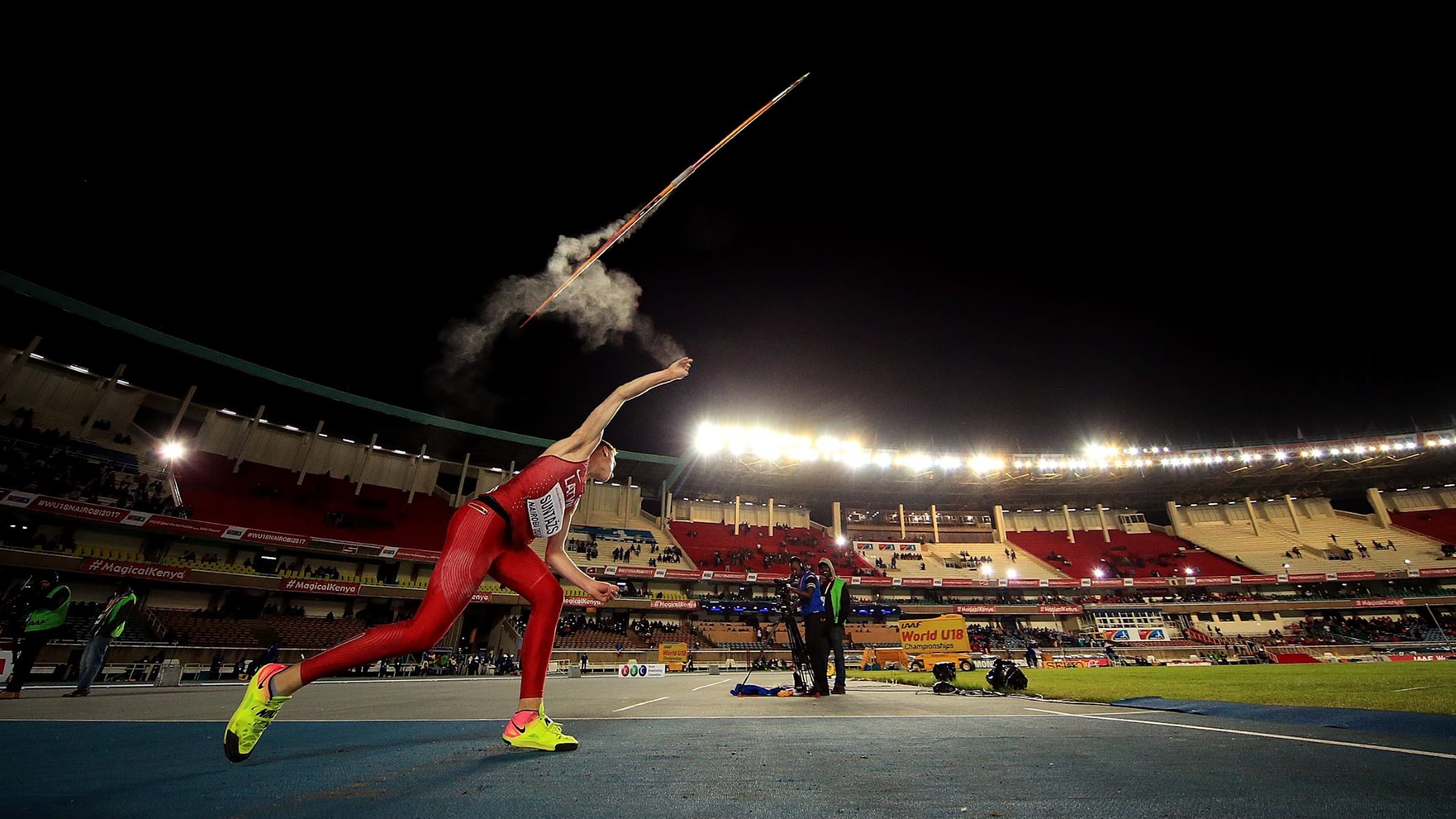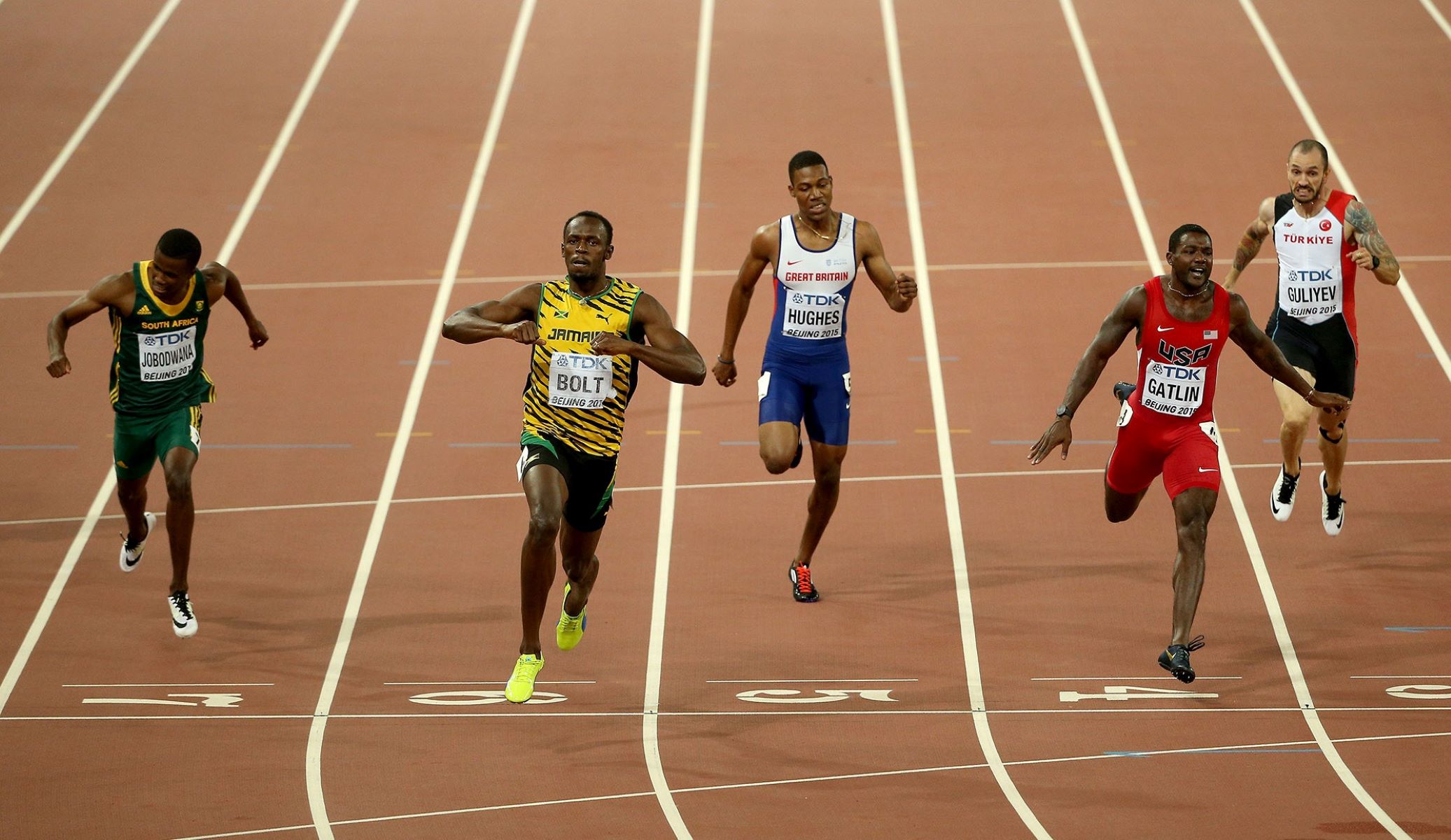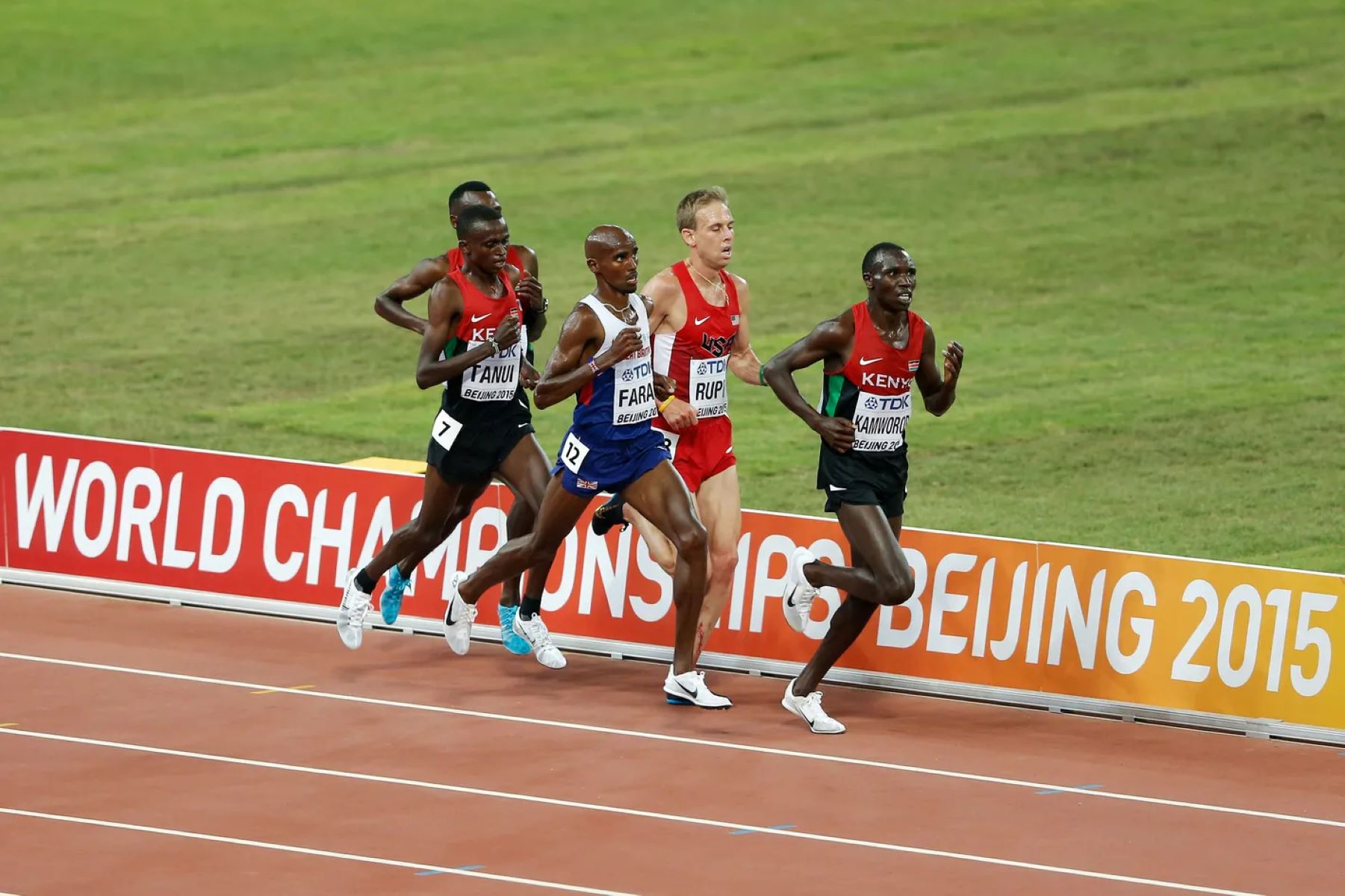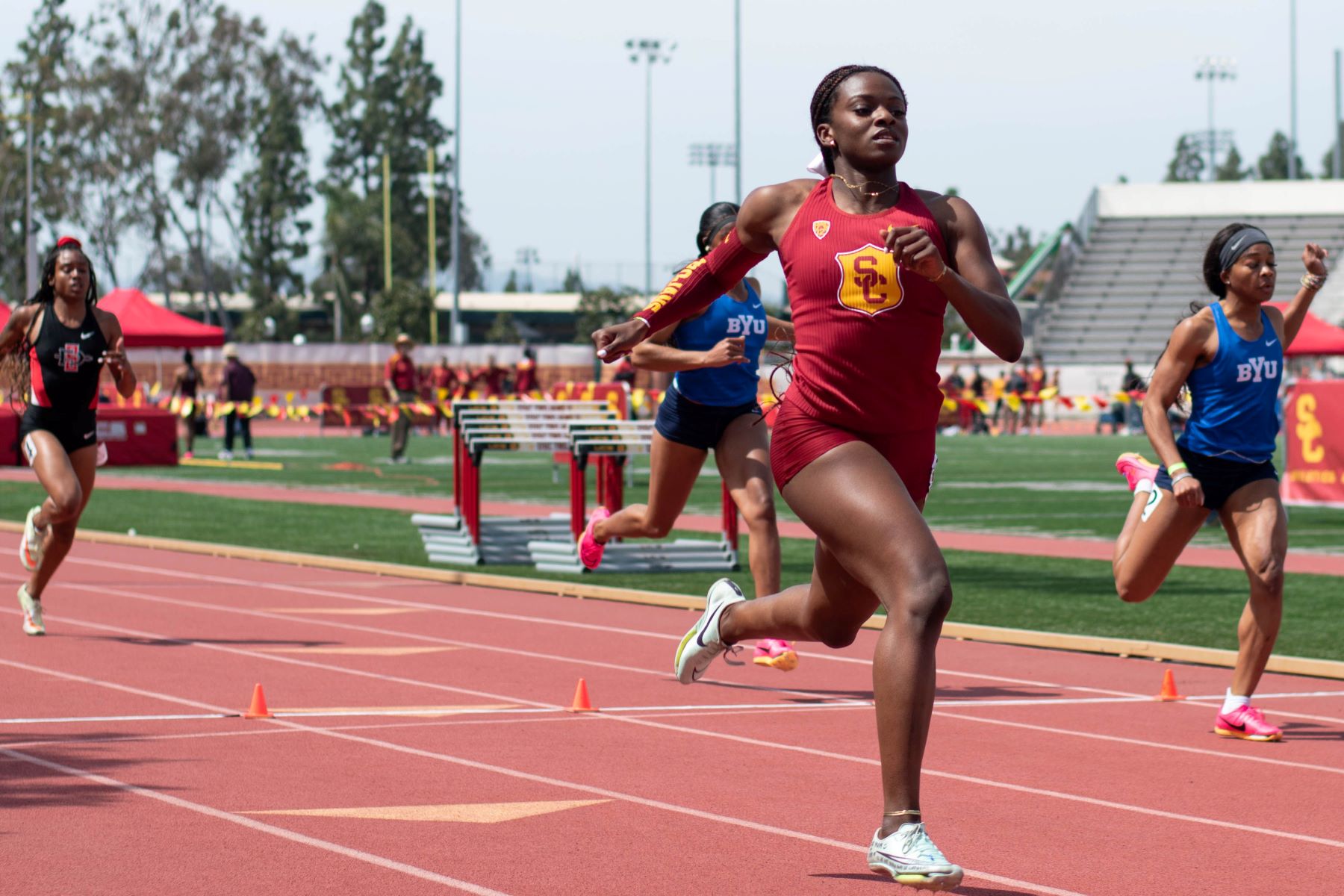Home>Misc>Featured>Who Has The Most Gold Medals In Track And Field
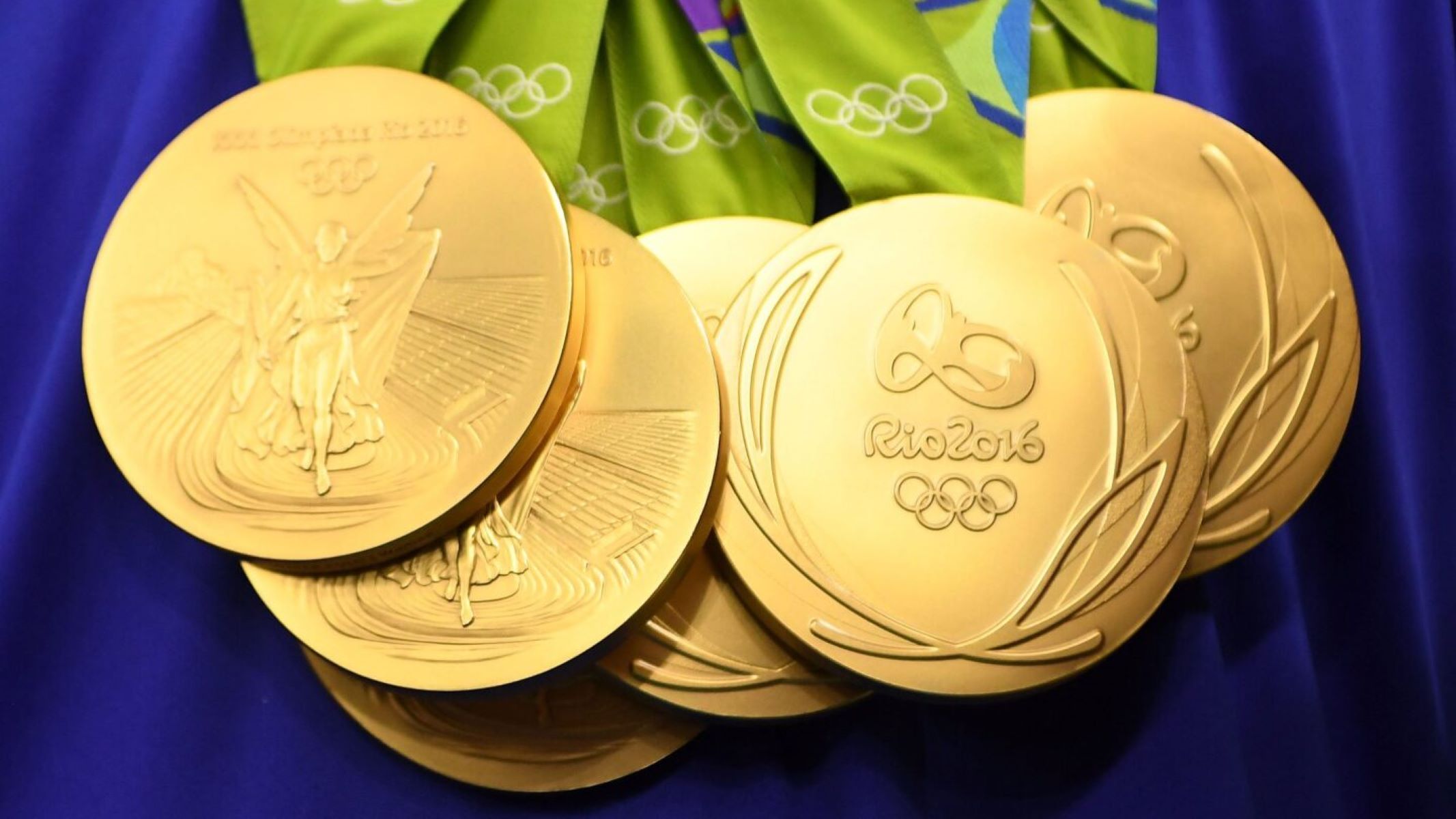

Featured
Who Has The Most Gold Medals In Track And Field
Modified: January 2, 2024
Discover who holds the record for the most gold medals in track and field. Featured athletes who have dominated the sport with their extraordinary performances.
Introduction
Track and field, often referred to as athletics, is a sport that has captivated audiences around the world for centuries. With its roots dating back to ancient Greece, this sport embodies the essence of human competition and showcases the raw athleticism and determination of its participants.
Track and field events encompass a wide range of disciplines, including sprints, long-distance running, jumping, and throwing. These events test an athlete’s speed, endurance, strength, and agility, and have become a platform for athletes to showcase their skills on a global stage.
One of the most prestigious accomplishments in track and field is winning a gold medal. The gold medal represents the pinnacle of success and is a symbol of years of hard work, dedication, and sacrifice. It is the ultimate recognition for an athlete’s exceptional performance and serves as a testament to their mastery of their respective event.
In this article, we will delve into the world of track and field and explore the significance of gold medals in this sport. We will examine the historical roots of track and field and its evolution over time. Additionally, we will highlight the records and achievements that have shaped the sport and immortalized its greatest athletes.
We will also shed light on the athletes who have amassed the most gold medals in track and field, showcasing their extraordinary talents and unrivaled success. Furthermore, we will analyze the dominant countries in track and field, exploring the factors that contribute to their consistent success.
Whether you are a passionate fan of track and field or simply curious about the sport, this article will provide you with valuable insights into the world of gold medals and the unmatched feats achieved by the athletes who have graced the track and field arena.
Historical Significance of Track and Field
The origins of track and field can be traced back to the ancient Olympic Games in Greece, where athletes would compete in various running, jumping, and throwing events to honor the gods. These ancient competitions laid the foundation for what would later become modern-day track and field.
Track and field has evolved over the centuries, with different civilizations and cultures putting their own spin on the sport. In medieval England, for example, track and field events were held during village fairs, showcasing the athleticism of the local inhabitants.
The modern era of track and field began in the 19th century, with the formation of athletic clubs and the establishment of organized competitions. These early events attracted large crowds and sparked a renewed interest in the sport.
Track and field gained international recognition with the formation of the International Association of Athletics Federations (IAAF) in 1912, which served as the governing body for the sport. The IAAF played a crucial role in standardizing rules and regulations and organizing international competitions, such as the Olympic Games and the World Championships.
Throughout history, track and field has played a pivotal role in showcasing human achievement. From Jesse Owens’ iconic victories at the 1936 Berlin Olympics to Usain Bolt’s electrifying performances in the 2008 and 2012 Games, track and field has produced legendary athletes who have transcended the boundaries of sport.
Track and field events have also been a platform for pushing the limits of human potential. Athletes continually strive to break records and surpass previous performances, demonstrating the indomitable spirit of human ambition and determination.
Furthermore, track and field has been instrumental in promoting inclusivity and breaking down barriers. Athletes from diverse backgrounds and cultures have come together to compete and celebrate their shared love for the sport, fostering a sense of unity and equality.
The historical significance of track and field lies not only in its athletic prowess but also in its ability to inspire and captivate audiences. It has transcended time and cultural boundaries, leaving an indelible mark on the world of sports and serving as a testament to the extraordinary capabilities of the human body and spirit.
Evolution of Track and Field
The sport of track and field has undergone significant evolution throughout its history, adapting to societal changes, technological advancements, and a growing understanding of human performance. From its humble beginnings in ancient Greece to the highly sophisticated events of the modern era, track and field has continually evolved to push the boundaries of athletic achievement.
One of the key aspects of the evolution of track and field is the refinement of techniques and training methods. Athletes and coaches have consistently sought ways to improve performance, leading to advances in training methodologies, nutrition, and biomechanics. This has resulted in faster sprint times, longer jumps, and greater throwing distances.
Another notable evolution in track and field is the standardization of events and rules. In the early days, events varied greatly between regions and countries, making it challenging to compare performances and establish records. With the formation of governing bodies such as the IAAF, standardized rules were introduced to ensure fairness and consistency in competition.
The development of equipment and facilities has also played a significant role in the evolution of track and field. From the invention of spiked shoes for better traction to the construction of state-of-the-art tracks and jumping pits, advancements in equipment have enabled athletes to push their limits and achieve unprecedented results.
In recent years, the technological revolution has further propelled the evolution of track and field. Innovations such as electronic timing systems, video analysis, and performance tracking devices have revolutionized training and performance evaluation. Athletes now have access to data-driven insights that help them fine-tune their training regimens and optimize their performances.
Additionally, the evolution of track and field extends beyond the physical aspects of the sport. Inclusion and diversity have become important focal points, with efforts to promote gender equality, disability sports, and representation from underrepresented communities. This shift toward inclusivity has enriched the sport, fostering a more diverse and vibrant track and field community.
As we look to the future, the evolution of track and field is likely to continue, driven by advancements in science, technology, and our understanding of human performance. Athletes will continue to defy expectations and rewrite records, pushing the limits of what is possible in the quest for athletic excellence.
Importance of Gold Medals
Gold medals hold a special significance in the world of sports, particularly in track and field. They represent the ultimate achievement and serve as a symbol of excellence, dedication, and athletic mastery. The importance of gold medals in track and field can be attributed to several key factors.
First and foremost, gold medals signify the pinnacle of success for an athlete. Winning a gold medal in a track and field event is a culmination of years of hard work, sacrifice, and relentless training. It represents the fulfillment of dreams and the realization of goals that athletes have set for themselves.
Gold medals also hold immense value in terms of recognition and prestige. They are a testament to an athlete’s exceptional skill and ability to outperform their competitors on the global stage. Winning a gold medal elevates an athlete’s status and secures their place in the history of the sport.
Furthermore, gold medals have a profound impact beyond the individual athlete. They serve as a source of inspiration, motivating future generations of track and field athletes to strive for greatness. Winning a gold medal not only brings honor to the individual but also to their country and the entire track and field community.
In addition, gold medals often bring financial rewards and sponsorship opportunities for the athletes. Successful track and field athletes who have captured gold medals become marketable figures, attracting endorsements and sponsorships from brands seeking to align themselves with excellence and success.
Gold medals also have an emotional significance for both athletes and fans. They symbolize triumph over adversity, overcoming physical and mental challenges, and pushing the limits of human potential. For fans, seeing their favorite athletes win gold medals is a source of pride and inspires a sense of unity and support for their country and the sport as a whole.
Finally, gold medals have a lasting legacy. The names of gold medalists in track and field events are etched in history, forever memorializing their achievements. These athletes become legends, with their stories and accomplishments serving as a source of inspiration for generations to come.
Overall, the importance of gold medals in track and field cannot be overstated. They represent the ultimate goal for athletes, symbolize excellence and recognition, inspire future generations, and leave a lasting legacy in the world of sports.
Records and Achievements in Track and Field
Track and field is a sport that has witnessed numerous remarkable records and awe-inspiring achievements throughout its history. From world records that seem unbeatable to Olympic performances that have left audiences in awe, these records and achievements have shaped the sport and immortalized the athletes who have achieved them.
One of the most renowned records in track and field is Usain Bolt’s world record in the men’s 100-meter sprint. In 2009, Bolt blazed through the finish line in a mind-boggling time of 9.58 seconds, showcasing incredible speed and athleticism. This record still stands today, solidifying Bolt’s status as one of the greatest sprinters of all time.
Another iconic record is Jarmila Kratochvílová’s world record in the women’s 800-meter run. Set in 1983, Kratochvílová crossed the finish line in a time of 1 minute and 53.28 seconds, a record that remains unbeaten for over three decades. Her dominance in the event is a testament to her exceptional talent and endurance.
Track and field is also known for its extraordinary achievements in field events. Mike Powell’s long jump world record, set in 1991, is a prime example. Powell soared through the air for an astounding 8.95 meters, breaking Bob Beamon’s long-standing record. This monumental feat showcased the power and precision required in the long jump event.
When it comes to the achievements in the Olympic Games, one cannot overlook the incredible endurance displayed by long-distance runner Emil Zátopek. In the 1952 Helsinki Olympics, Zátopek won gold medals in the 5,000-meter, 10,000-meter, and marathon events, a triple gold feat that has never been replicated. His incredible versatility and determination solidify his place in Olympic history.
In addition to individual records and achievements, relay events in track and field also hold immense importance. The men’s and women’s 4×100-meter relay records are notable examples. The Jamaican men’s team, anchored by Usain Bolt, set a blistering world record of 36.84 seconds in 2012, while the United States women’s team set the women’s record at 40.82 seconds in 2012. These records highlight the teamwork and precision required in relay races.
These records and achievements not only serve as benchmarks for future athletes but also capture the imagination and passion of track and field enthusiasts worldwide. They inspire athletes to push their limits and strive for new heights, showcasing the incredible feats that can be accomplished through dedication, talent, and relentless pursuit of excellence.
Profiles of Athletes with Most Gold Medals
In the world of track and field, there are several athletes who have amassed an impressive number of gold medals, solidifying their status as legends of the sport. Let’s take a closer look at some of these remarkable athletes and their extraordinary achievements.
Usain Bolt – Known as the fastest man alive, Usain Bolt has dominated the world of sprinting with his incredible speed and showmanship. The Jamaican sprinter has won a total of 8 Olympic gold medals, including three consecutive 100-meter and 200-meter victories in 2008, 2012, and 2016. Bolt’s electrifying performances and world records in the sprint events have secured his place as one of the greatest athletes of all time.
Carl Lewis – A name synonymous with greatness, Carl Lewis is one of the most decorated athletes in track and field history. Competing in the long jump, sprint, and relay events, Lewis captured a total of 9 Olympic gold medals throughout his illustrious career. His extraordinary versatility and ability to consistently perform at the highest level make him an iconic figure in the sport.
Paavo Nurmi – Often referred to as the “Flying Finn,” Paavo Nurmi was a long-distance running sensation in the 1920s. The Finnish middle and long-distance runner won a staggering 9 Olympic gold medals and set numerous world records in events ranging from the 1,500 meters to the 10,000 meters. Nurmi’s determination and domination in distance running established him as a legendary figure in track and field.
Allyson Felix – A true icon of women’s sprinting, Allyson Felix has achieved remarkable success throughout her career. The American sprinter has accumulated a total of 9 Olympic gold medals, making her the most decorated female track and field athlete in Olympic history. With victories in events such as the 200 meters and the 4×100-meter relay, Felix’s speed and versatility have established her as a role model for aspiring athletes.
Fanny Blankers-Koen – Known as the “Flying Housewife,” Fanny Blankers-Koen made history at the 1948 London Olympics. The Dutch athlete won an impressive 4 Olympic gold medals in various sprint and hurdle events, including the 100 meters and 80-meter hurdles. Blankers-Koen defied societal norms by competing and succeeding at the highest level after becoming a mother, inspiring women around the world.
These profiles highlight just a few of the incredible athletes who have achieved multiple gold medals in track and field. Their exceptional performances, dedication to the sport, and ability to consistently dominate their respective events have solidified their status as true legends of track and field.
Analysing the Dominant Countries in Track and Field
Track and field is a globally beloved sport that has witnessed the rise of dominant countries in various events. These countries have consistently produced exceptional athletes, winning numerous gold medals and setting records along the way. Let’s take a closer look at some of the dominant countries in track and field and the factors contributing to their success.
United States – The United States has long been a powerhouse in track and field, boasting a rich history of success in various events. The country’s well-established sports infrastructure, collegiate system, and focus on athletics at a young age have helped produce a deep talent pool of exceptional athletes. The United States consistently excels in events such as sprints, relays, and jumps, and has produced legendary athletes such as Carl Lewis, Jesse Owens, and Florence Griffith Joyner.
Jamaica – Despite being a small Caribbean nation, Jamaica has emerged as a dominant force in sprinting. The country’s success can be attributed to a combination of innate talent and a strong emphasis on grassroots development programs. Additionally, Jamaica’s warm climate fosters the perfect conditions for athletes to train and excel in sprint events. The rise of extraordinary sprinters like Usain Bolt, Shelly-Ann Fraser-Pryce, and Asafa Powell has bolstered Jamaica’s reputation as a sprinting powerhouse.
Kenya – Kenya has become synonymous with excellence in long-distance running, particularly in events like the 800 meters, 1,500 meters, and marathon. The country’s success in distance running can be attributed to various factors, including a strong culture of running, high-altitude training facilities, and a naturally favorable physiological makeup for endurance events. Kenya has produced iconic runners like Kipchoge Keino, David Rudisha, and Eliud Kipchoge, who have dominated the global stage and set numerous records.
Russia/Eastern Europe – Eastern European countries, particularly Russia, have historically been dominant in field events such as shot put, discus throw, and pole vault. The success of these countries can be attributed to their rigorous training programs, strong coaching systems, and emphasis on technical skills. Athletes from Russia and Eastern Europe, such as Yuriy Sedykh, Sergey Bubka, and Yelena Isinbayeva, have consistently set records and achieved unparalleled success in these events.
These dominant countries in track and field have not only produced exceptional athletes but have also built strong support systems and training environments to nurture talent. Factors such as investment in sports infrastructure, robust coaching systems, access to world-class facilities, and a strong sports culture all contribute to the success of these nations.
It’s important to note that the dominance of certain countries can fluctuate over time, as other countries continue to invest in their athletics programs and produce outstanding athletes. Nevertheless, the rich sporting legacies and continued success of these dominant countries serve as inspiration and benchmarks for aspiring track and field athletes worldwide.
Factors Contributing to Success in Track and Field
Success in track and field requires a combination of various factors that come together to propel athletes to the top of their game. From talent and dedication to training and support systems, these elements play a crucial role in an athlete’s journey towards achieving greatness. Let’s explore some of the key factors that contribute to success in track and field.
Natural Talent – Natural talent forms the foundation for success in track and field. Athletes who possess inherent physical attributes such as speed, endurance, agility, and coordination have a natural advantage in certain events. While talent alone is not enough, it provides a strong platform for further development and success.
Training and Coaching – Rigorous training regimens and expert coaching are essential for honing an athlete’s skills and maximizing their potential. Professional training programs focus on building strength, improving technique, enhancing speed and endurance, and developing mental toughness. Experienced coaches provide guidance, mentorship, and technical expertise to athletes, helping them refine their abilities and overcome challenges.
Physical and Mental Preparation – Physical preparation encompasses not only training but also proper nutrition, rest, and injury prevention. Athletes must maintain a balanced and nutritious diet, get ample rest and recovery, and engage in injury prevention exercises to optimize their performance. Mental preparation, including goal setting, visualization, and mental resilience training, is also crucial to help athletes stay focused, confident, and resilient during competitions.
Support Systems – A strong support system is vital for success in track and field. This includes supportive families, friends, and teammates who provide encouragement and emotional support. Additionally, access to quality sports facilities, equipment, and medical support is essential. Financial and sponsorship support can also enable athletes to pursue their dreams and compete at the highest level.
Competition Experience – Experience gained from competing at various levels, from local meets to national and international competitions, is invaluable. Exposure to different competition environments, challenging opponents, and high-pressure situations allows athletes to develop resilience, adaptability, and strategic thinking. It also provides opportunities to benchmark their performance and gain valuable insights that contribute to continual improvement.
Passion and Perseverance – Track and field success is fueled by a deep passion for the sport and the relentless pursuit of excellence. Passion drives athletes to push their limits, embrace challenges, and persist through setbacks. Perseverance is crucial, as the journey to success in track and field is often filled with hurdles and obstacles. Athletes must have the determination and resilience to navigate through setbacks, setbacks, and failures.
In summary, achieving success in track and field requires a combination of natural talent, dedicated training and coaching, physical and mental preparation, a strong support system, competition experience, and unwavering passion and perseverance. These factors work in synergy to propel athletes to the top of their sport, enabling them to achieve extraordinary feats and leave their mark on the world of track and field.
Conclusion
Track and field is a sport that embodies the essence of human achievement, pushing the limits of what is physically and mentally possible. The significance of gold medals in track and field cannot be overstated—it represents the ultimate recognition for an athlete’s exceptional performance and serves as a symbol of years of hard work, dedication, and sacrifice.
Throughout history, track and field has evolved, adapting to societal changes, technological advancements, and a growing understanding of human performance. It has captivated audiences with its rich history, remarkable achievements, and awe-inspiring records. The sport has showcased the extraordinary talents of athletes like Usain Bolt, Carl Lewis, and Allyson Felix, whose accomplishments have solidified their status as legends.
The dominant countries in track and field, such as the United States, Jamaica, Kenya, and Russia/Eastern Europe, have consistently produced exceptional athletes, setting records and winning numerous gold medals. Factors like natural talent, rigorous training, coaching, support systems, experience, passion, and perseverance contribute to their success.
The importance of gold medals extends beyond the individual athlete. They inspire future generations, foster unity and national pride, and serve as a testament to the incredible feats achieved through dedication, talent, and relentless pursuit of excellence. They also leave a lasting legacy, forever memorializing the names of those who have achieved greatness.
As we look to the future of track and field, we anticipate further evolution and breakthroughs, driven by advancements in science, technology, and our understanding of human performance. Athletes will continue to push the boundaries, rewriting records and inspiring generations to come.
In conclusion, track and field is a sport that celebrates human potential, showcasing the remarkable capabilities of the human body and spirit. The journey towards gold medals is filled with dedication, sacrifices, and unwavering passion. It is a testament to the indomitable spirit of athletes and their pursuit of excellence in every stride, leap, and throw. The global appeal and timeless allure of track and field will continue to captivate audiences, reminding us of the extraordinary achievements and the enduring legacy of those who have left their mark on this remarkable sport.
